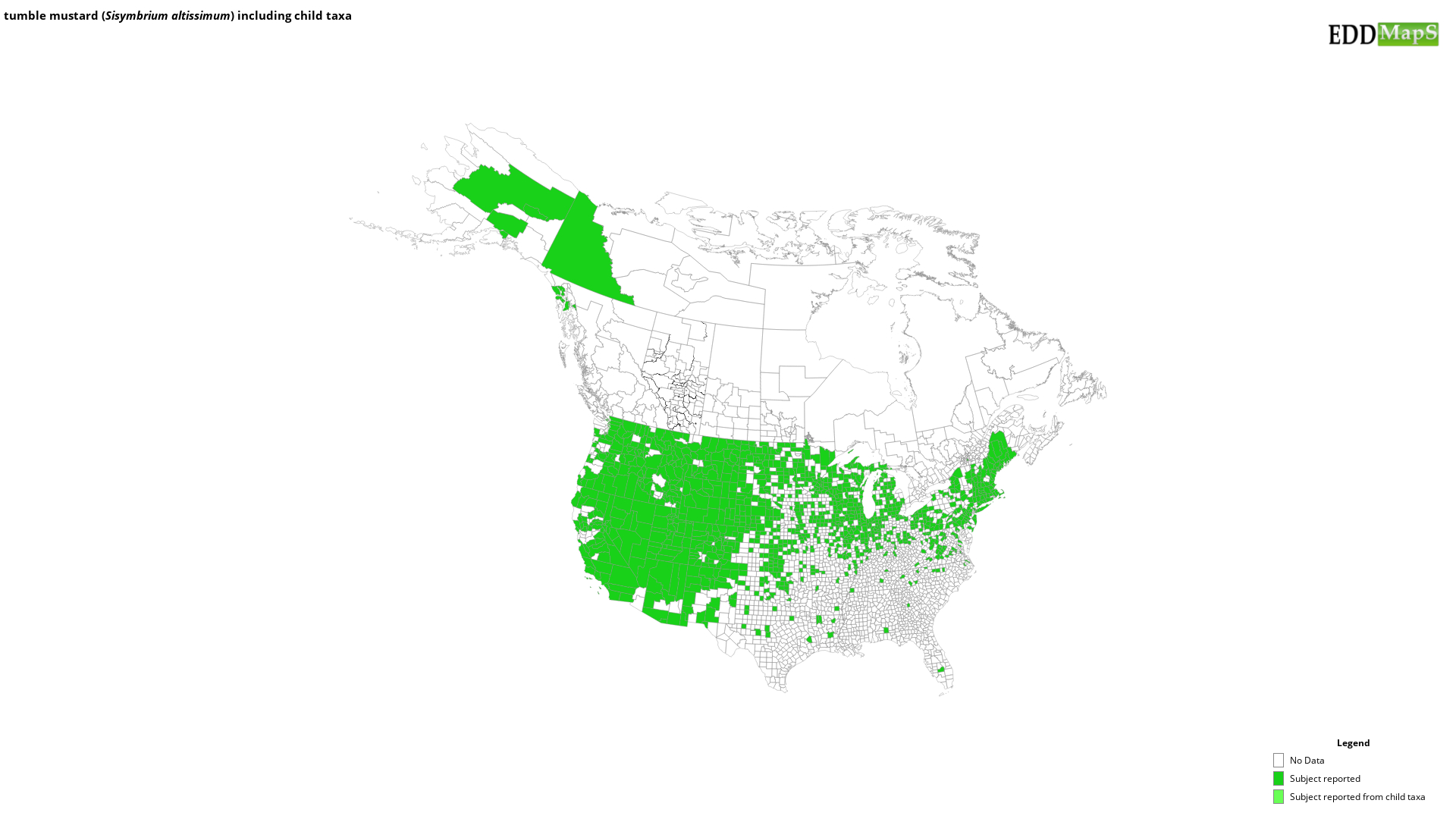tumble mustard
(Sisymbrium altissimum)
Overview
- Appearance
- Sisymbrium altissimum is an annual/biennial herb native to Eurasia. Plants can reach almost 5 ft. (1.5 m) in height.
- Foliage
- Cauline (stem) leaves are alternate, 0.5-5 in. (1.3-12.7 cm) long and decrease in size up the stem.
- Flowers
- Flowering occurs in late spring to summer, when small, 4-petaled, yellow to white flowers develop in groups at the apex of the stems.
- Fruit
- Fruits are narrow seed pods that are 2-4 in. (5-10 cm) long and contain more than 120 seeds.
- Ecological Threat
- Sisymbrium altissimum was first seen in the United States in 1878 in Philadelphia; seeds were probably introduced accidentally in ship ballast. Plants invade fields, open forests, and other disturbed open areas.
Selected Images
Maps
EDDMapS Distribution - This map is incomplete and is based only on current site and county level reports made by experts, herbaria, and literature. For more information, visit www.eddmaps.org
State List - This map identifies those states that list this species on their invasive species list or law. For more information, visit Invasive.org
Invasive Listing Sources
- Invasive Plant Species of West Virginia
- Jil M. Swearingen, Survey of invasive plants occurring on National Park Service lands, 2000-2007
- John Randall, The Nature Conservancy, Survey of TNC Preserves, 1995.
- WeedUS - Database of Plants Invading Natural Areas in the United States
- West Virginia Native Plant Society, Flora West Virginia Project, and West Virginia Curatorial Database System, September 3, 1999
Taxonomic Rank
| Kingdom: Plantae |
| Phylum: Magnoliophyta |
| Class: Magnoliopsida |
| Subclass: Dilleniidae |
| Order: Capparales |
| Family: Brassicaceae |
| Genus: Sisymbrium |
| Subject: Sisymbrium altissimum L. |
Other System Links
Plants: SIAL2
Bayer: SSYAL
GRIN: 34451
ITIS: 23312
NPDN Pest: PBKBDBA
NPDN Host: 36472
Synonyms and Other Names
Other Common Names:
tall tumblemustard, Jim Hill mustard, tall mustard, tumbleweed mustard
Related Scientific Names:
Norta altissima L. (Synonym)
References
Common Name Reference: Weed Science Society of America Common Names List
Scientific Name Reference: PLANTS Database

